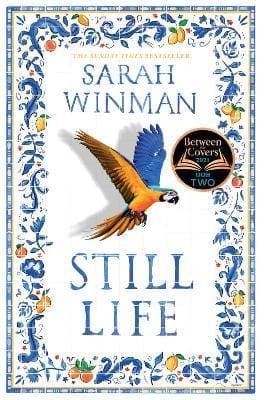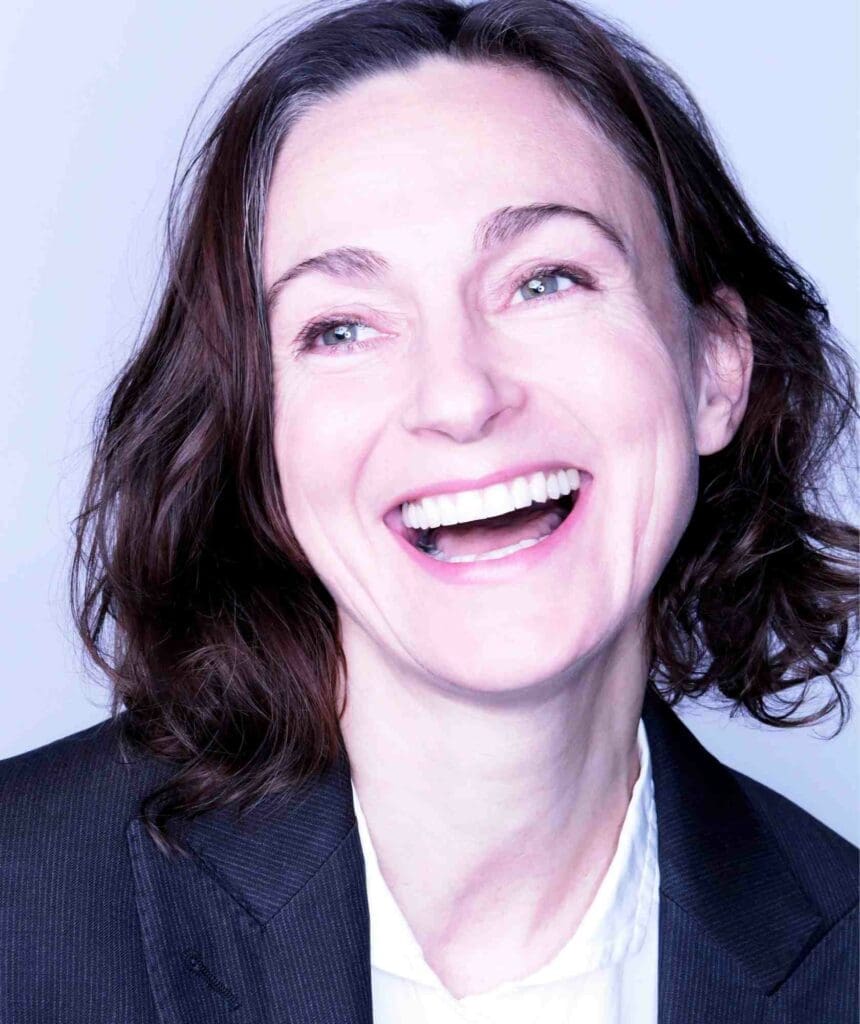It’s a book cover you may have seen everywhere in the past year, and story that seems like the perfect antidote to our pandemic times. Capsule talks to Still Life author Sarah Winman, who is touring Aotearoa next week, about why her book was born out of Brexit, the real-life tragedy that inspired her writing and the creative trick she relies on for her book ideas.
The sprawling novel Still Life, which came out in mid 2021, is such a perfect antidote to these times we live in that it’s hard to believe author Sarah Winman actually wrote it as a response to Brexit, before the pandemic was even a glimmer on the horizon.

“It was early on in 2018 that I started writing it and it had the weight of Brexit on it,” Sarah says over Zoom from her kitchen. “It was the politics of this country and our-right wing government, and the divisiveness… all of which we are completely going into the sewer with now,” she adds drily. “But when the pandemic hit, the book allowed people to imagine another country, imagine a time away from the familiar.”
There’s a global catastrophe (a world war), followed by a freak act of nature (the 1966 Florence floods) as the backdrop to all the action that happens. Two characters, a young soldier and an art professor, at different ends of their lives, share a meal one night during World War Two in a ruined wine cellar. And the ripple effects of that night will then go on to shape the next 35 years of their mostly separate lives. In amongst all the chaos and trauma of the world events, Still Life is a tribute to the daily joys that get us through: good food, good wine, best friends, cold-water swims, pets, sex, love and, most of all, art – and the life-changing power of a trip to Italy.
It is, as one reviewer calls it, “a tonic for wanderlust and a cure for loneliness” and has become one of Sarah’s most successful books after she switched out acting in high-profile shows like Call The Midwife for full-time writing.
She handed in her final edit just after the first UK lockdown, knowing the book would be out a year later. “It was a weird time because it was all so unknown,” she says. “I was thinking, ‘Is life going to be the same? Surely in a year’s time, this will all be different?’ But I gave the book in, in the same way I always do, full of doubt, ‘it’s no good’, imposter syndrome, ‘I’ll be found out’… the usual,” she laughs.


One of the creative tools that Sarah has used ever since she started writing is Julia Cameron’s ‘The Morning Pages’, a morning ritual followed by creatives like Elizabeth Gilbert, where upon waking you write three pages of whatever is in your brain, in order to clear out your creative mind. They don’t have to be exciting or interesting – Sarah herself describes her pages as ‘moan, moan, moan’ but she says, when she was looking over her pages from the past four years, she could see the characters and plot lines of Still Life, starting to fight their way out.
The threads that came together to form Still Life were many: there was the path Sarah’s own grandfather took as a working-class soldier, going from North Africa through Sicily, up into Florence – a path that becomes the route of main character, Ulysses Temple, at the beginning of the book. Sarah had also been hugely inspired by the 2014 movie Boyhood, which was filmed in real-time over 12 years, showing the real-life ageing of a make-believe family.
“I came to the end of that film and I wondered if I could write a book like that, because I found with myself, in watching it, nothing really happens apart from the moments of life that we all have – the ageing, the mundane daily life,” Sarah says. “The mundane is fascinating to me – the everyday humanness, the everyday fears, and then the breakthroughs. I don’t need a novel to hold a great deal for me, sometimes too much plot gets in the way.”
The majority of Still Life takes place in post-war Florence, when Ulysses and his make-shift family end up living just off a small town square in the Italian city. Sarah says that she had no intention of writing about Florence – her three previous books all taking place in areas she knew well – but it was while on holiday in Florence in 2015, looking at art, that she first learnt about the devastating 1966 floods that killed 101 people and destroyed thousands of houses, as well as tens of thousands of works of art, and the ‘mud angels’, the nickname given to people who arrived in Florence to help restore the city.
“That was where the feeling arrived that I knew that the story had latched onto me,” she says. “I didn’t want to write it, but I knew I had an idea bubbling away, which I kept pushing away. There are so many books written about Florence, I didn’t know where to start! There were so many questions and eventually, the answer was that I just had to go there.”
Sarah secured a small writer’s grant that allowed her to live in the city for a month. “I wanted to try and take in the seasons, to understand about the light, the food that comes in each season, and how would it be to be there?” She got a small flat in January 2019 and it was after spending the month there, she realised how she would write it.
“I realised that my life was different there – I’d set it up the way I’d lived in London,” she says. “I found a café that I went to, I went to the market – and with all this amazing produce, I’d still buy what I’d buy in the UK and cook the same thing. I realised that that’s what we tend to do: create a routine and stick to it. It was less about the city and more about the people – it was Florence through [the characters’] eyes. And that freed me up.”
The book’s success has brought Sarah one of the rarest gifts a writer can have: space. “When a book does well, you get permission to have some time to come up with what you want to do next.” Sarah says that the hunt for the next idea really comes down to trusting her curiosity – no matter how vague or left-field it seems. “It was hard after this book because we weren’t going anywhere and I am creative when I get on a plane or a train,” she says. “I don’t find the familiar creatively potent.”
In the absence of travel, it becomes about ‘following every creative instinct’, she says. “’Why am I looking up this person? Why am I buying this book?’ Everything that you think does not make sense… then I can eventually see why things make sense and why I’m interested in them.” Who knows where that creative meandering will take her next?
Sarah Winman is in Aotearoa next week for three events: Auckland on 14th September, Wellington on 15th September and Masterton on 16th September.

